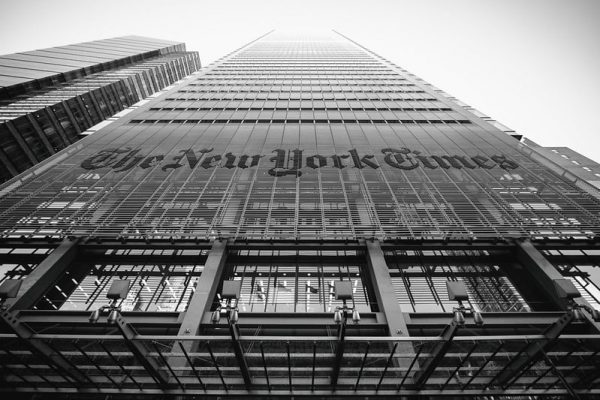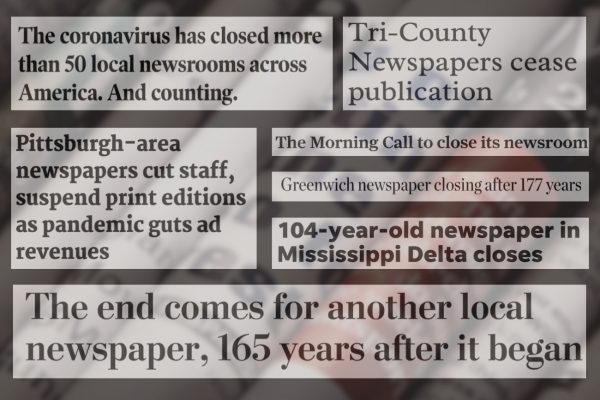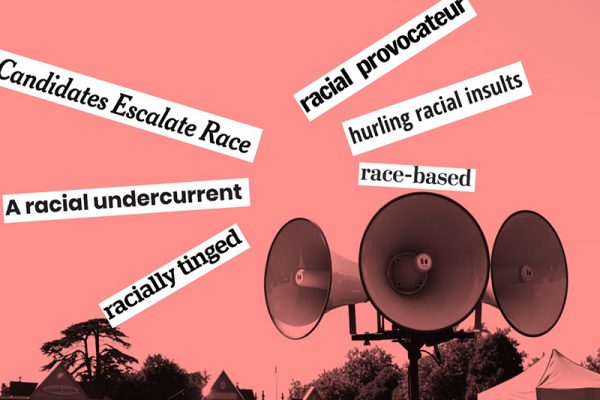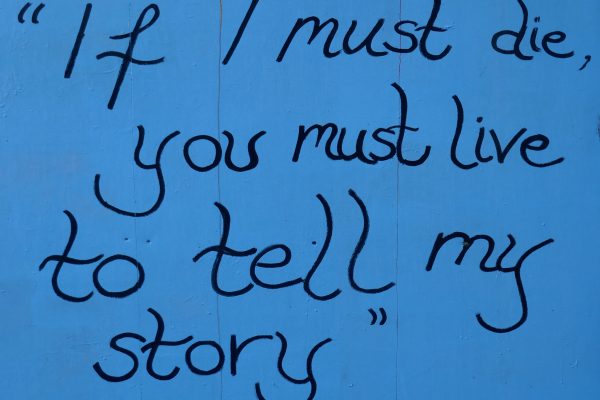Most scholars agree that American print journalism is in crisis. But the damage that has been done is not solely the result of social media and Trumpist attacks on fake news. Decline and distrust are also functions of the changing geography of news: journalists are increasingly concentrated in a few large, elite, urban, coastal news organizations, typified above all by the New York Times and the Washington Post. “This has resulted in news that is mostly aimed at wealthy, mostly white, liberals,” journalism scholar Kevin M. Lerner wrote this summer. “There is little coverage of local communities. . . . There is much less diversity in these newsrooms—demographic as well as ideological—than in the population. All this adds up to a legitimate basis for critique.”
Today’s reading list takes a leaf from Lerner’s book and recognizes that restoring a trustworthy daily news report requires first analyzing and criticizing—in good faith—the state of journalism. For journalism professor Magda Konieczna, putting the media at the mercy of the marketplace was a misguided move that ravaged our newsrooms and allowed misinformation to fill the vacuum. “The market and democracy have different goals,” she wrote in 2020, “and when they’re at odds, the latter always loses out.” It’s an argument that Boston Review has pushed for more than twenty years, starting with our 1998 forum “Making Media Democratic,” which touted the commercialization of public discourse as a disaster. If we are serious about democracy, lead author Robert W. McChesney argues, we must work aggressively for reform. Konieczna agrees, highlighting the need for policy interventions for public alternatives.
The stakes are high. As philosopher C. Thi Nguyen makes clear in his essay “Polarization or Propaganda?,” evidence suggests that the latter is to blame for our democratic dysfunction—particularly the imbalance between left- and right-wing media ecosystems. Internet and information expert Yochai Benker concurs. “The critical transformation happened when media on the right became a multimillion-dollar business that sells outrage,” he commented in a 2018 interview. The solution? Benkler warns us against channeling our energy into improving online platforms. Instead, he points back to mainstream media. “Journalists and editors need some new norms.”
Finally, we would like to mention that we will be taking a break from the reading list next weekend. But we will return in late October! In the meantime, if you have topics you want to see explored in a future list—or other feedback on our reading lists or email communications in general—then please reach out by simply replying to this email or contacting me directly at rosie@bostonreview.net.
Public interest journalism may not be salvageable. But more than being saved, it needs to be radically rethought.
Quality news is essential for democracy. We must stage an intervention to save it.
Yochai Benkler argues that the mainstream media is our best hope for tempering the radical right.
Forum
For democrats, the concentration of media power and commercialization of public discourse are a disaster. If we are serious about democracy, we need to work aggressively for reform.
With its elite decision-makers and opinion-formers, the Economist has exerted tremendous influence on popular liberal discourse for more than a century.










